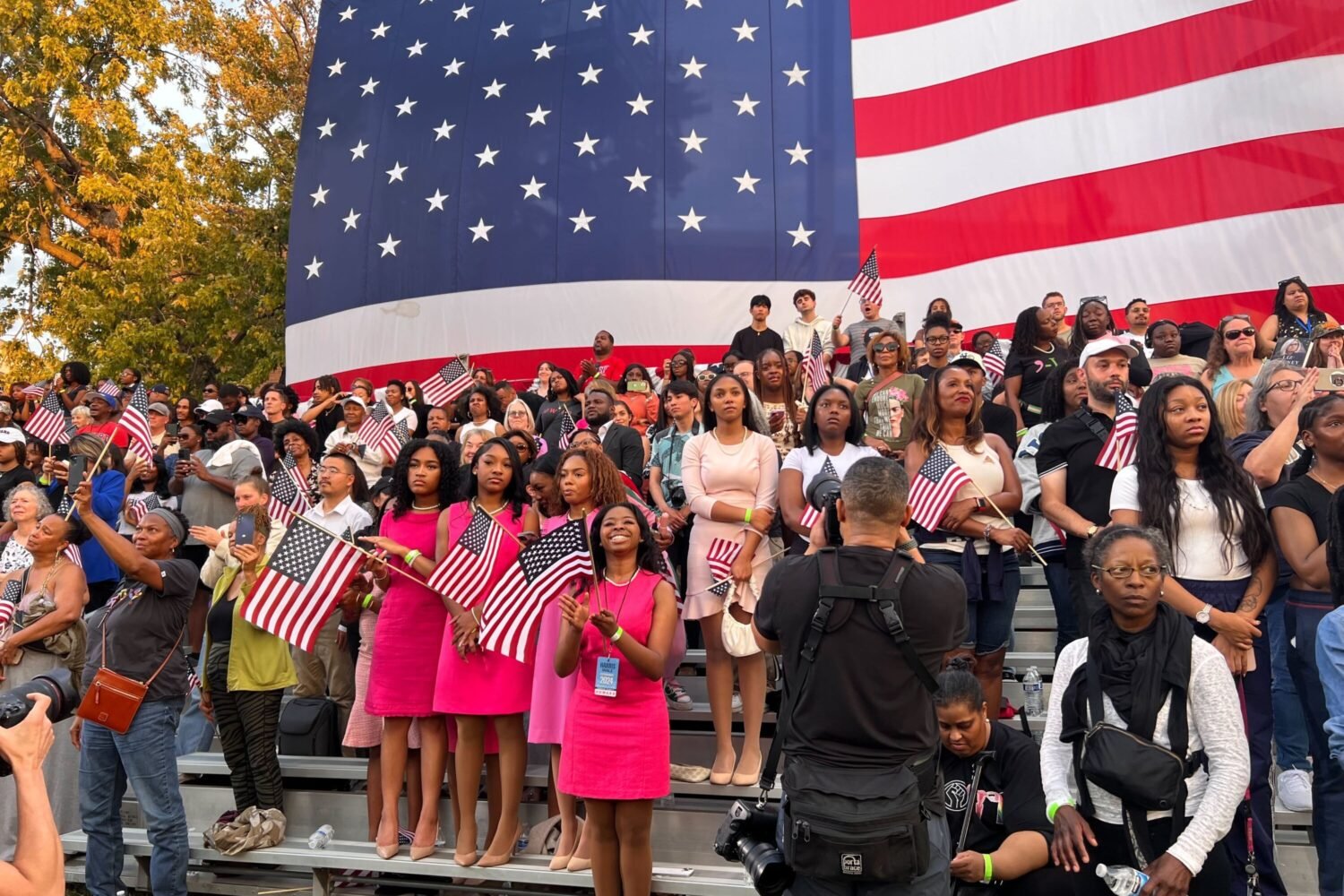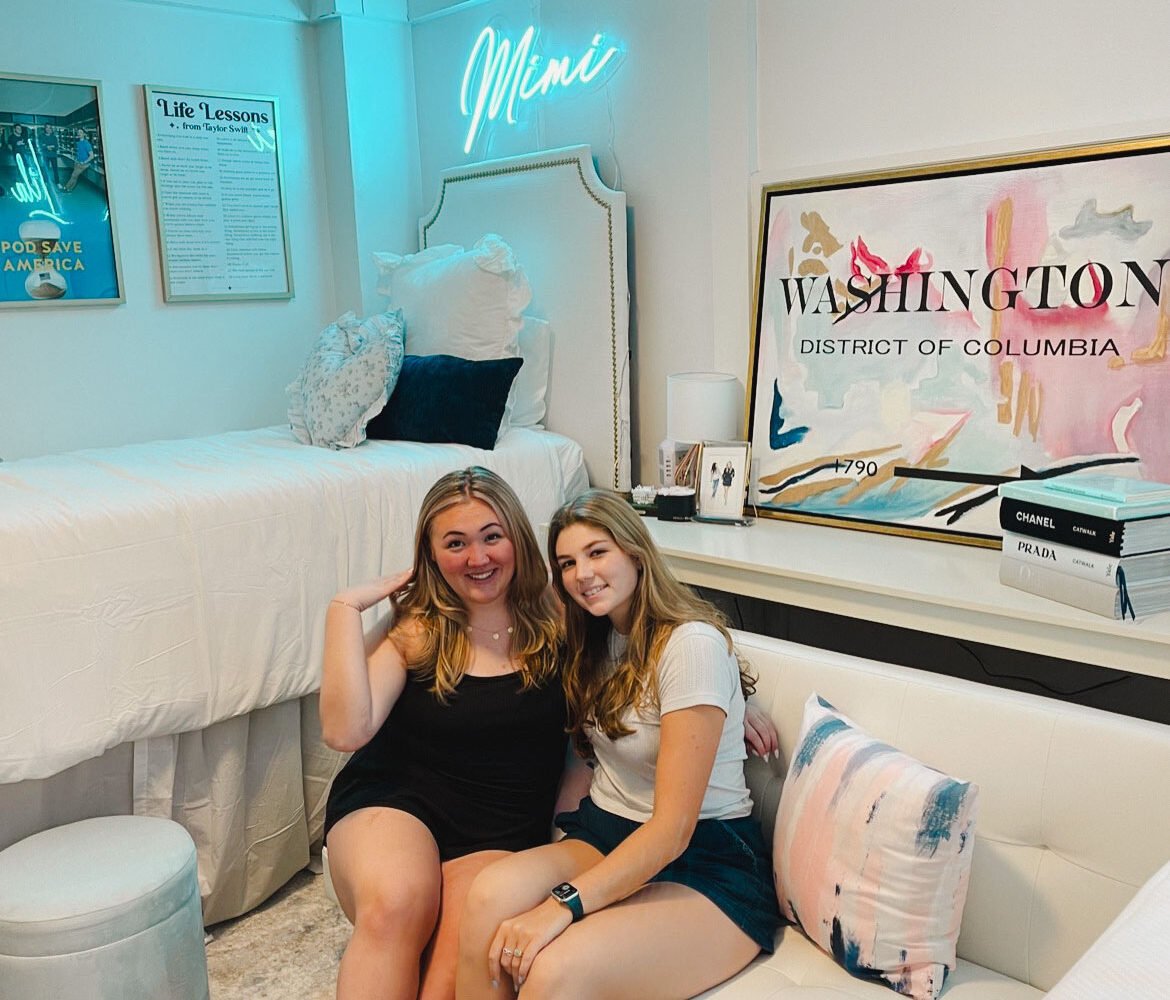Eleven locals whose hard work, creativity, innovation, and commitment make Washington a great place to live.
Sara Portman Milner
Cofounder, Sunflower Bakery
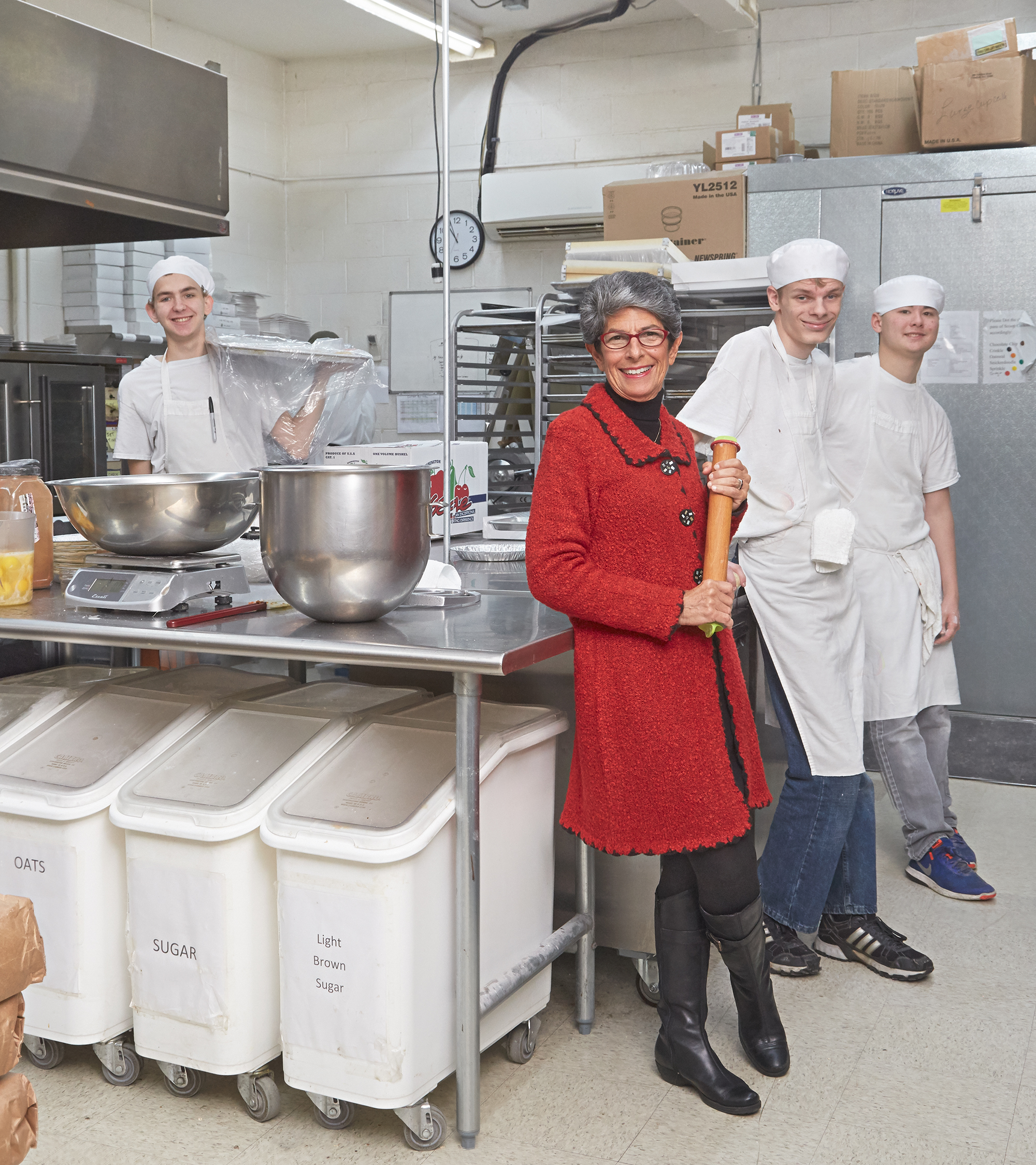
At Sunflower Bakery, Sara Portman Milner shapes futures one cookie at a time. Milner spent many years at the Jewish Community Center of Greater Washington working to get children and adults with disabilities into community life. She knew that once kids with disabilities graduate from high school, job opportunities are few and far between.
The nonprofit Sunflower Bakery started in 2009 to teach adults with cognitive disabilities baking skills and to prepare them for jobs in commercial kitchens, restaurants, and other food-related businesses.
Six months of chef instruction at the Gaithersburg kitchen include how to use professional equipment safely and maintain sanitation standards. Participants can also train at Café Sunflower in North Bethesda, learning to interact with customers face to face—a challenge for those on the autism spectrum in particular. A participant told Milner, “I have learned to smile. I have a bank account. It’s unbelievable.”
Sunflower Bakery has 57 graduates, now working at Founding Farmers, Safeway, Clyde’s, and other businesses. One alum started at Ridgewells and has moved on to Marriott, making desserts such as flan and crème brûlée. “I want to work at Marriotts all over the world,” he says.
Thanks to Sara Portman Milner and Sunflower Bakery, he just might.
Dr. Wayne A.I. Frederick
President, Howard University
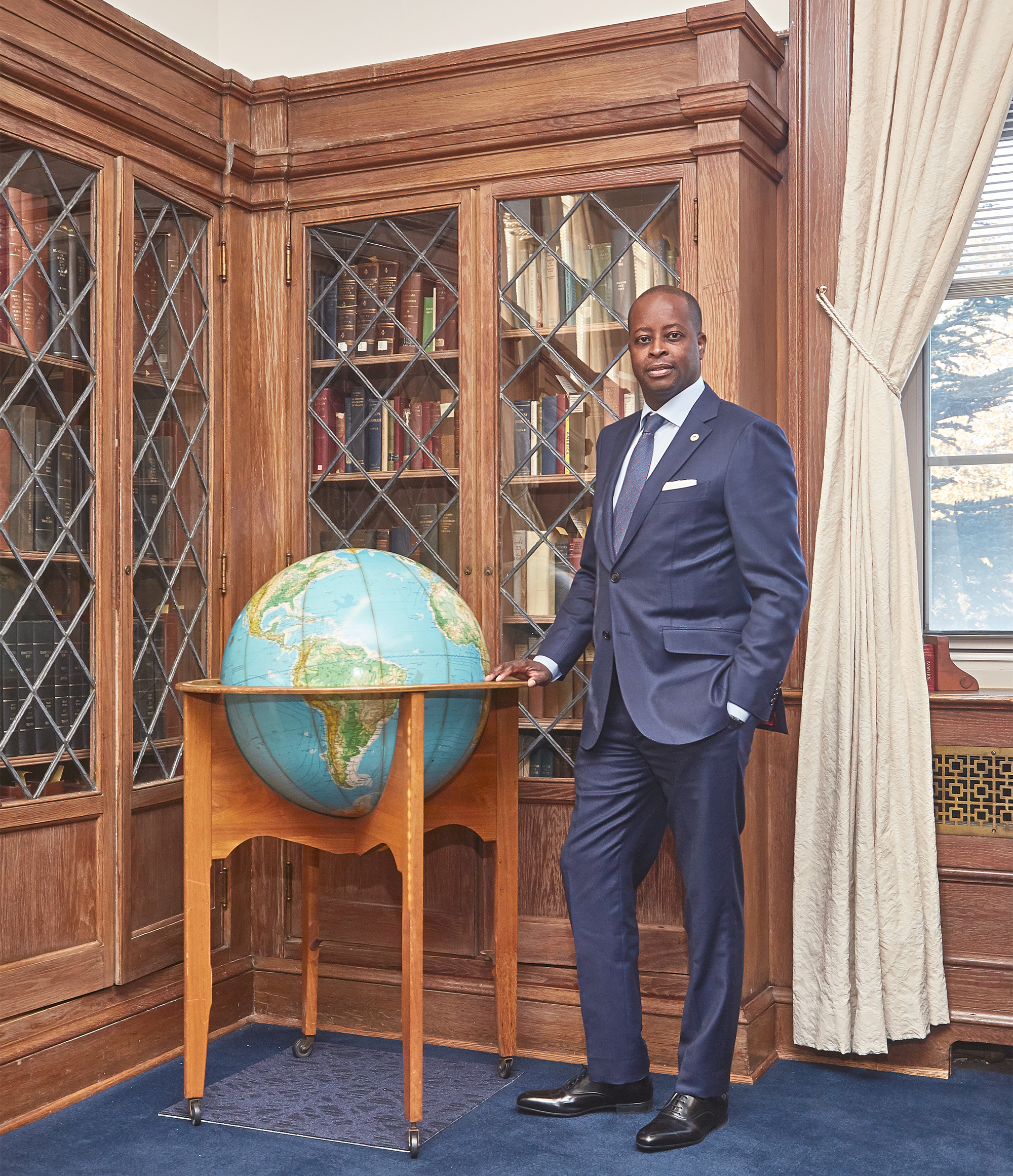
Wayne Frederick was 16 in 1988 when he came from Trinidad to enroll at Howard University. Six years later, he had a BS and an MD. He still has a surgical career but now focuses more on academia. In 2014, after serving as, among others, Howard’s interim president and provost as well as an associate dean in the medical school (plus earning an MBA), Frederick was named university president.
Howard has changed since his undergrad days. “We have the same dynamism and altruistic intent,” he says, but classes have moved from didactic presentation to dialogue, with an emphasis on applied knowledge. A partnership with Google launched “Howard West” in Mountain View, California, where computer-science majors get coding experience and are taught by Google engineers and Howard faculty.
Historically black colleges and universities were once the only choice for many African-Americans. Now they can be a great choice, Frederick believes. This year, a Howard student from Nigeria graduated at 18 and is seeking a PhD from UC Davis. Another completed his academic requirements in three years after being a finalist for a Rhodes scholarship. He’s the son of immigrants from Benin—his father is a licensed practical nurse whose degree wasn’t transferrable to the US; his mother, with no formal education, is a caretaker for the elderly. Says Frederick: “We opened him up to the possibilities.”
Jim Foster
President, Anacostia Watershed Society
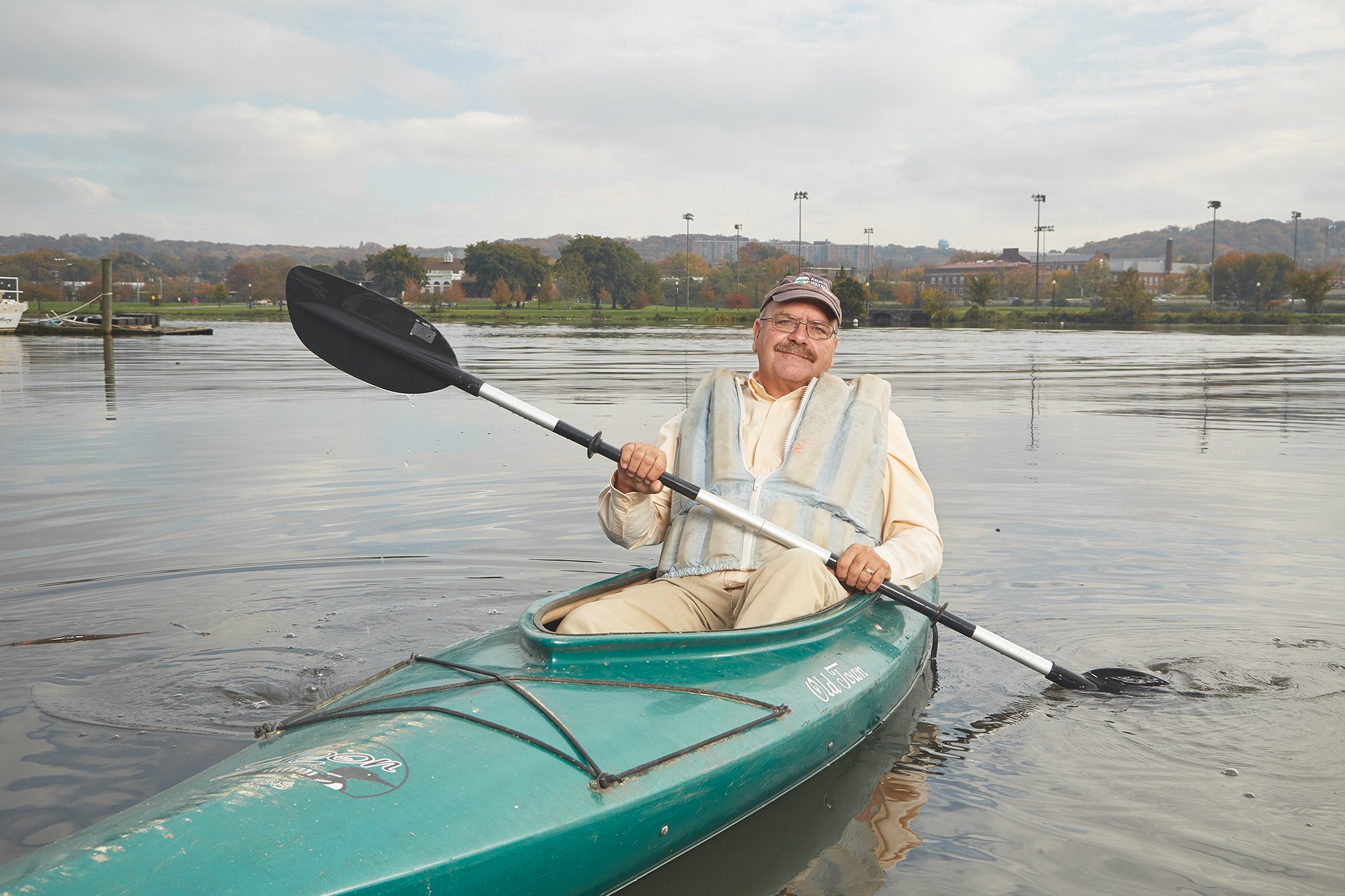
Jim Foster sees two encouraging signs that the Anacostia River is becoming cleaner: The shore has its first pair of nesting eagles in 70 years after being wiped out from eating contaminated fish. And—what really delights him—the paddleboarders have arrived.
It’s a stark contrast with the Anacostia Watershed Society’s founding in 1989, when tires and cars littered the river. Says Foster: “You could walk across on all the trash.”
Since joining the society as president in 2009, Foster has led a small but dedicated staff in protecting and re-storing the Anacostia and its watershed communities, which cover 176 square miles in DC and Maryland. “Fishable and swimmable by 2025” is the group’s working motto. One of the biggest achievements under Foster has been implementation of the District’s “bag bill” in 2010—requiring stores to charge five cents for every plastic bag—after studies showed that disposable plastic bags were one of the largest sources of litter in the Anacostia. Now, he says, the trash problem is “99 percent under control,” with discarded beverage containers the next issue to tackle.
The ultimate measure of success for Foster? “What I want is for people to wade into the water and get their feet wet.”
Brenda Rhodes Miller
Executive director, DC Campaign to Prevent Teen Pregnancy
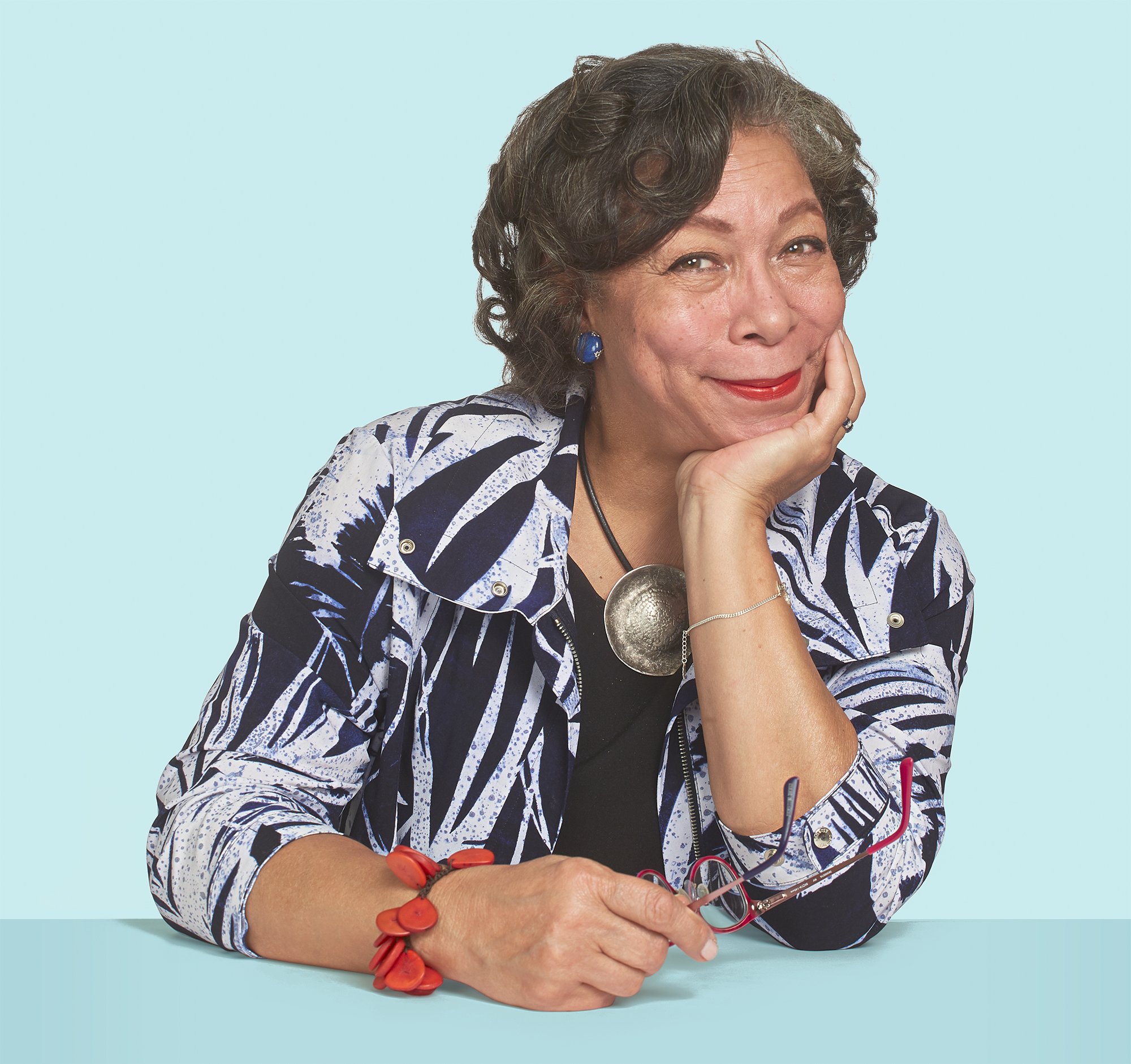
In 1999, when Brenda Rhodes Miller was asked to head DC Campaign to Prevent Teen Pregnancy, DC had the US’s highest pregnancy rate among girls 15 to 19—152.1 per 1,000. Miller was familiar with principles for youth success—education, health care, access to trustworthy adults. But for prevention, “kids have to be motivated not to get pregnant.” Under her watch, DC Campaign set out to halve teen pregnancy by 2005. Believing parents have the biggest investment in a child’s success, it launched workshops to help them communicate with kids about love, sex, and values. By 2005, teen pregnancy dropped to 64.4 per 1,000, exceeding DC Campaign’s goal. Over the next decade, Miller led efforts to duplicate that. In 2015, the rate fell to 31.7 percent, the lowest since the group’s founding.
It has trained more than 2,500 parents and other adults, including probation officers, and held conferences to educate 1,700 professionals serving young people. Programs at DC schools have taught teens how to avoid pregnancy via abstinence or contraception. For MedStar Washington Hospital Center midwife Loral Patchen, Miller’s work has had a “very tangible” impact. In 1999, 15 to 20 mothers under age 15 came to Patchen’s clinic daily; today she sees maybe one: “There are many reasons for these changes, but the shining star is Brenda.”
Katherine Bradley
Executive chair, CityBridge Education
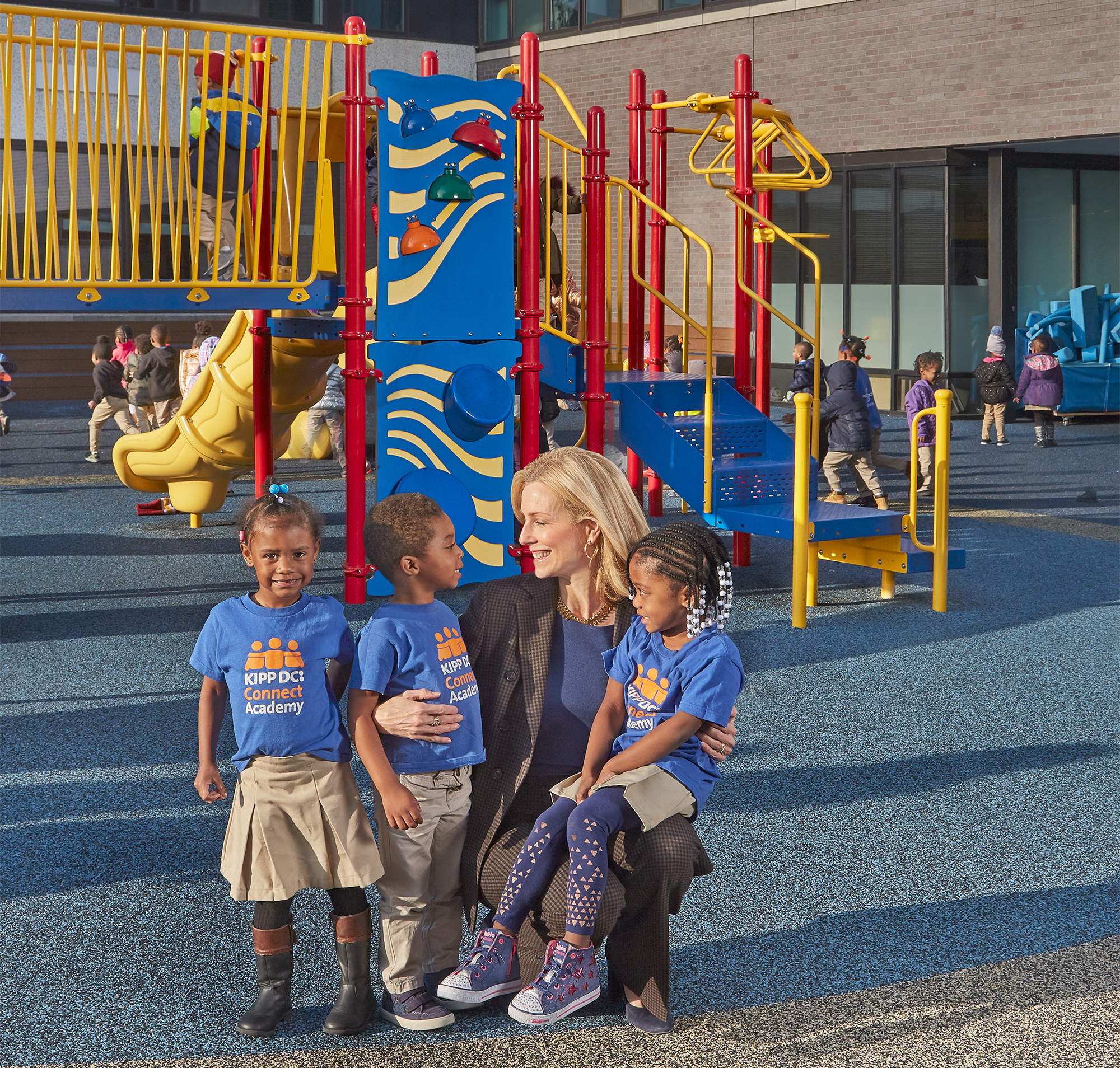
Katherine Bradley is inspired by the changes she sees in DC schools. In her nine years chairing the local board of Teach for America, she came to see the District as a “talent mecca” and its school system embarking on an upward path to success. In 1994, she and her husband, David—chairman of Atlantic Media, which owns National Journal and Quartz, among other media outlets—created CityBridge Foundation to apply effective business practices to nonprofits. That effort has since been channeled into CityBridge Education, a nonprofit that works to design new DC schools focusing on personalized education and innovative school models. Among those CityBridge Education has supported is Washington Leadership Academy, a public charter high school. At the end of freshman year, students take an exam to earn a professional certification. Every tenth-grader takes the computer-science AP test.
CityBridge Education fosters DC Public Schools’ Opportunity Academies, comprising Ballou STAY (School to Aid Youth), Roosevelt STAY, Luke C. Moore, and Washington Metropolitan, which offer education to 16-to-24-year-olds, many of them over-age and under-credit. CityBridge seeks innovations across the US that could work here: A system of West Coast charter schools inspired Opportunity Academies’ Summit Learning, a program that helps students personalize their education.
“I feel so lucky that I get to do this,” Bradley says. “A school that works is a magic thing to behold.”
Mark Warner
US senator
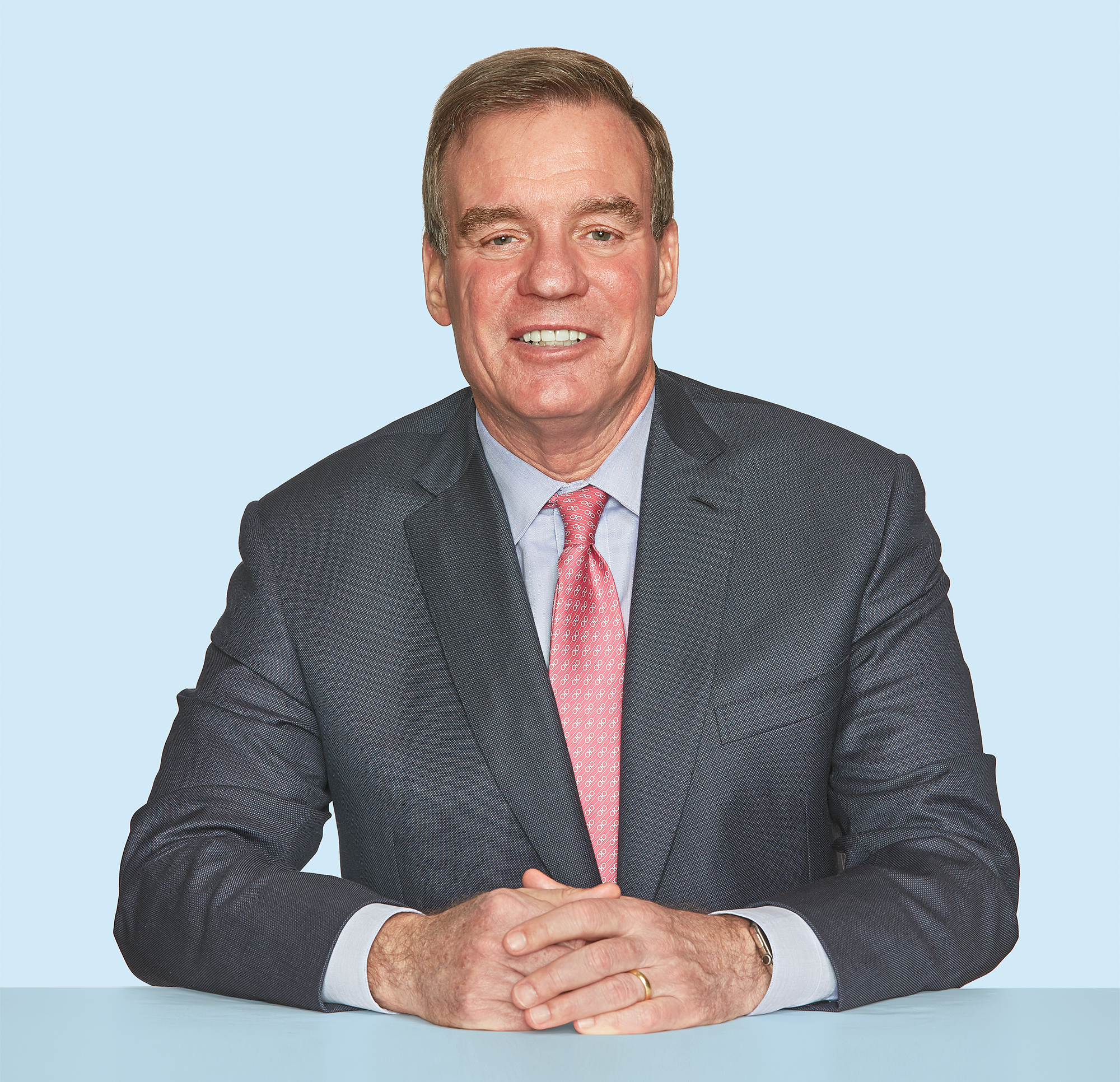
Mark Warner has spent more of his life in business than in politics. An entrepreneur who cofounded the company that became Nextel, he says business taught him the importance of compromise. Warner and Republican colleague Richard Burr have earned a reputation for across-the-aisle cooperation as leaders of the Senate Select Committee on Intelligence, currently investigating one of the day’s most divisive and high-profile issues: alleged Russian meddling in the 2016 election.
Warner’s background has made him a strong advocate on some critical issues. He and senators Amy Klobuchar and John McCain introduced the Honest Ads Act to require platforms like Google and Facebook to pre-vent foreign interests from anonymously buying political ads. He cofound-ed the bipartisan Senate Cybersecurity Caucus in 2016 and is encouraging Virginia universities and community colleges to offer training in that field.
One priority is better access to medical care for veterans. As he puts it, “Veterans Affairs needed to bring in a management SWAT team.” Thanks to his initiative, the Northern Virginia Technology Council has proposed improvements to systems at VA medical facilities, at no taxpayer cost. It’s the kind of public/private partnership Warner believes in. It worked when he was Virginia governor and a bipartisan coalition fixed the state’s finances. He admits it’s harder in DC. “I don’t think the country is nearly as divided as Capitol Hill,” Warner says. “The people send us here to put country first.”
Darlene Williamson
Executive director, Stroke Comeback Center
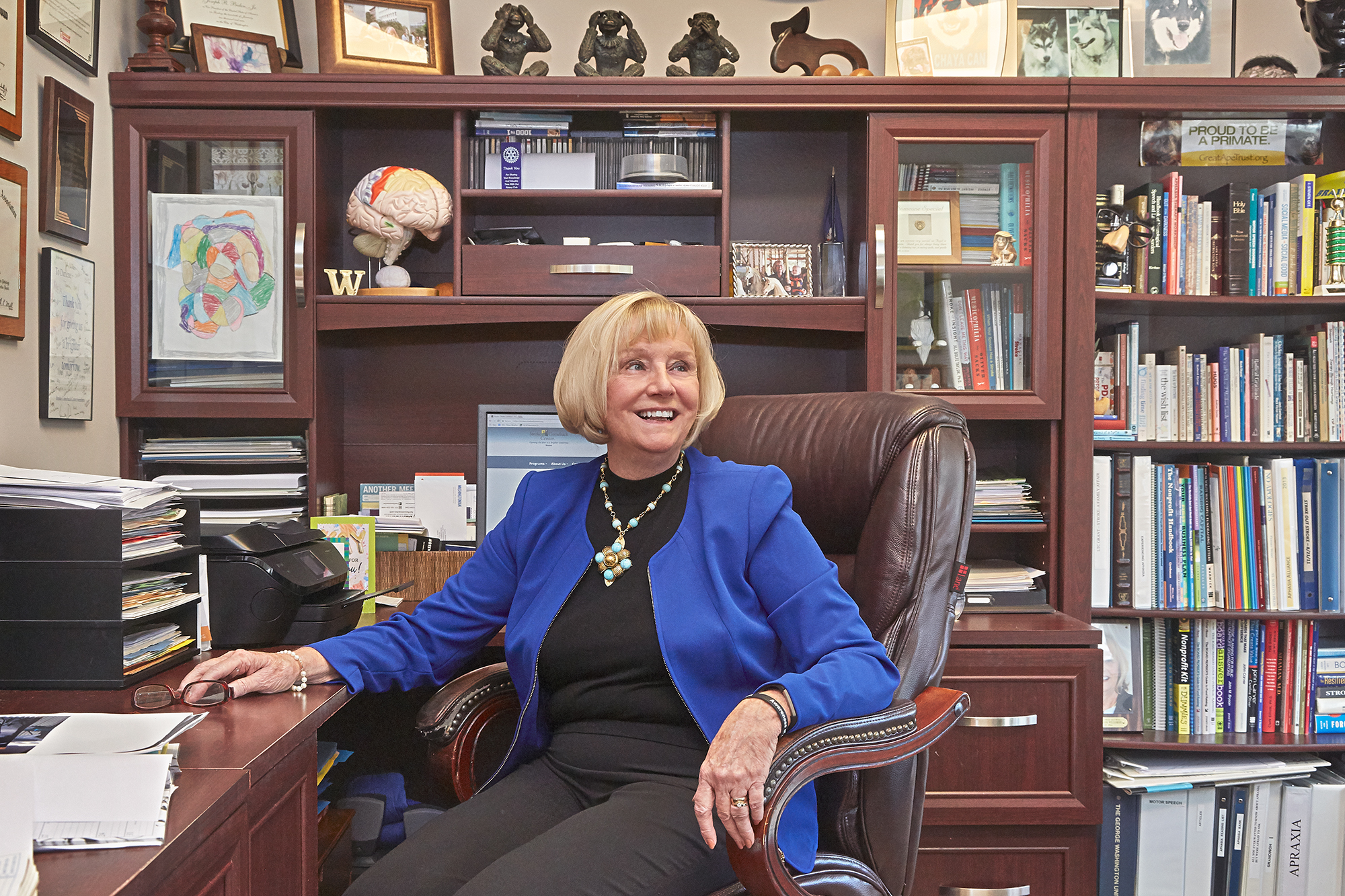
Stroke is the leading cause of long-term adult disability, yet most insurance runs out before survivors receive the care level needed for further language recovery, or when an achievement “plateau” has been reached only a few months in. In 2005, believing that survivors could make more progress, speech pathologist Darlene Williamson opened the Stroke Comeback Center in Vienna, which seeks to fill the gap in care when insurance runs out: “I always say I’m the ‘now what?’ ”
Her focus is on aphasia, which makes speaking and listening hard. What started with a handful of members has turned into about 125 who come to group speech therapy. Some are young, such as the mom who had a stroke the day after giving birth. Some are combat veterans, whom Williamson plans to focus on at a Rockville center opening in 2018. Besides communication skills, she hopes to give them back confidence: “One of the biggest goals I hear is ‘I want to go to Starbucks and order my own drink.’ ”
Christopher Baity
Executive director, Semper K9 Assistance Dogs
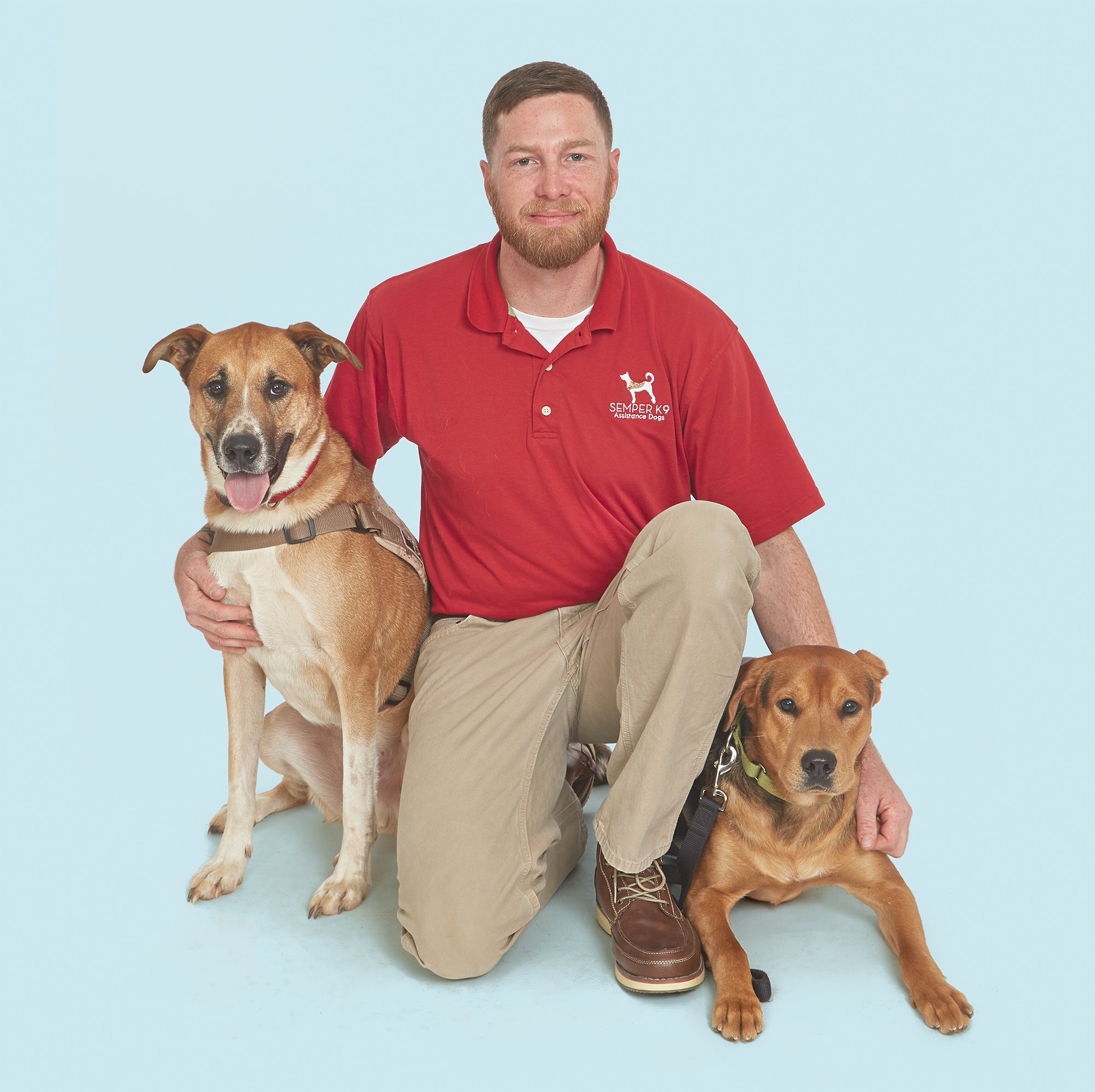
Chris Baity is looking for a dog that wants a job. Baity is the founder of Semper K9 Assistance Dogs, an organization that trains rescue dogs to be service animals for veterans with physical disabilities, PTSD, and other battle scars. Baity and his volunteers start before a veteran even meets his or her canine companion. Some dogs are taught to assist with physical tasks. Others specialize in what Baity calls “mental-heath mobility”: Sensing that their person is anxious, the dogs stay close, wake a veteran in the middle of a nightmare, or guide a sleepwalker away from falling.
Baity served eight years in the Marine Corps, including three tours in Iraq, where he trained combat dogs to detect weapons and explosives. When he returned stateside, he realized he could use his skills to help veterans and, in the process, help shelter dogs.
It takes six to 18 months to train the animals before they get their service vests and begin working with their “battle buddies.” Semper K9 trains ten to 20 dogs a year on its Woodbridge property but hopes to double that number when it moves to a site near Quantico military base.
Veterans and their dogs come back to Semper K9 for refreshers. Once, a vet brought his family. One of the children hugged Chris Baity and said: “Thank you for giving me my father back.”
Max Stier
President, Partnership for Public Service
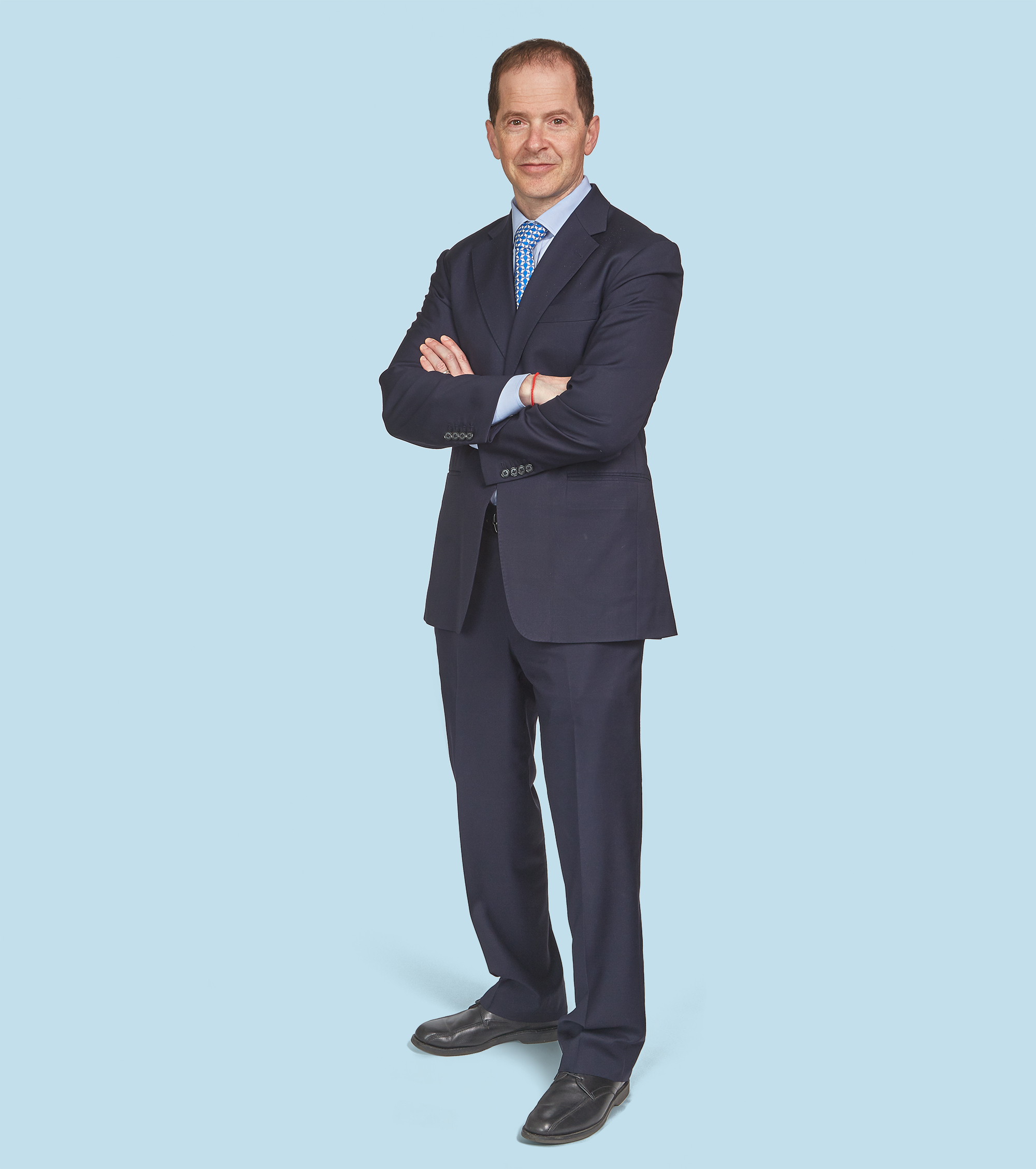
On 9/11, Max Stier, president and CEO of the Partnership for Public Service, was celebrating the organization’s anticipated launch at a breakfast in the US Capitol. The symbolic intertwining of that day’s events isn’t lost on him: “It was demonstrative of the importance of government—where everybody turns when a crisis happens.”
Since then, Stier has developed the Partnership into a first-class nonprofit that, among other things, recognizes federal workers who help make government more effective and efficient.
A former attorney who has worked in all three branches of government, Stier has a passion for federal work stemming from childhood, when he attended the Iowa caucuses, which he calls “wonderful examples of democracy in action, because you’re not going alone into a voting booth.”
Today the Partnership honors outstanding public servants through its Service to America Medals, or Sammies. From advances in wheelchair technology for disabled veterans to efforts halting Volkswagen’s emissions scheme and securing $17.4 billion in legal settlements, the list of winners “touches nearly every aspect of life,” says Stier. “By and large, people don’t think about their government until something goes wrong. Otherwise, they’re oblivious to the myriad ways that their quality of life—the safety they’re able to enjoy, the food they eat, the air they breathe—is fundamentally being kept safe for them by the US government.”
Lissa Muscatine & Bradley Graham
Owners, Politics and Prose
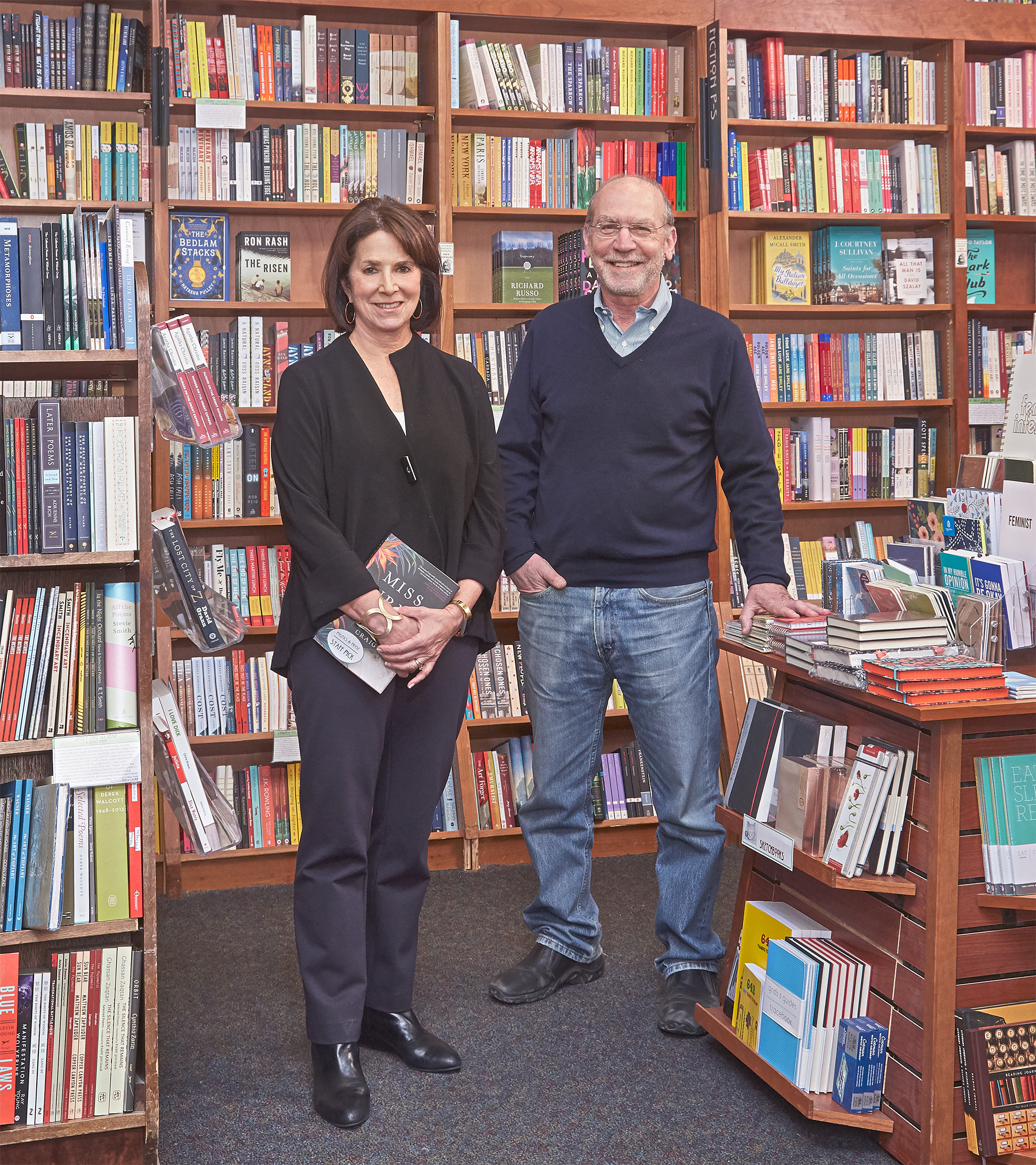
When Lissa Muscatine and Bradley Graham bought Politics and Prose in 2011, they knew they had beloved shoes to fill. The bookstore in upper Northwest DC had been owned for more than 25 years by Carla Cohen—who died in 2010—and Barbara Meade. In Graham and Muscatine’s early days, their mantra was simple: “Don’t screw it up.”
While neither had business experience (they’d met as journalists at the Washington Post), their concern wasn’t just turning a profit; they also had to keep the community—so crucial to the store’s identity—engaged, just as the founders had since 1984.
Today, with record-high sales six years in a row, Politics and Prose not only remains a cherished fixture for book lovers—with a recent expansion to the Wharf and plans to open in the Union Market district in 2018—but also has become a haven for the local community after the 2016 election.
“It’s been a really emotional year in some ways, because our customers have been reaching out for solace and guidance,” says Graham. In response, he and Muscatine added “teach-ins” to their schedule of events—forums where people can discuss nonpartisan topics such as women’s rights and civil liberties. The result is an “incredibly fruitful year for both the bookstore and the community,” says Muscatine. “The election and its aftermath—and certainly the reaction of the people who support this store—reinforced why independent bookstores matter.”
This article appears in the January 2018 issue of Washingtonian.

